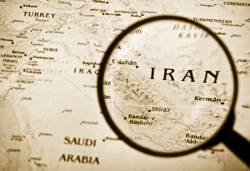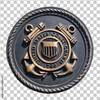Iran, Sanctions & You
The primary focus of last year’s annual update, which appeared in the April 2011 issue, was U.S. efforts to tighten economic sanctions against Iran. Over the past year, U.S. pressure on Iran has intensified. Syria also has been a target of new U.S. sanctions, while the sanctions against Libya imposed in early 2011 have been eliminated for all practical purposes by a series of general licenses. Our 2012 update concentrates on these key U.S. developments, but readers should be aware that these were not the only recent changes to U.S. and international sanctions programs. Keeping abreast of all applicable embargoes and sanctions remains a priority for international businesses.
Iran
Last year’s update focused on amendments to the Iran Sanctions Act (“ISA”) which targeted the provision of services in support of various aspects of Iran’s petroleum industry, including provision of ships or shipping services. Unprecedented enforcement efforts over the past year have brought to thirteen (13) the number of companies in the maritime, petroleum and other sectors now subject to sanctions under the ISA.
Effective November 21, 2011, the scope of sanctions against Iran’s petroleum industry was expanded by Executive Order 13590, which imposed “ISA-like” sanctions against persons providing goods, services, technology or support for the development of Iran’s petroleum resources or the maintenance or expansion of its petrochemical sector. As under the ISA, sanctionable activity is subject to certain value thresholds. In the case of provision of services in support of development of petroleum resources, sanctions are triggered by services with a fair market value of $250,000 or an aggregate fair market value of $1,000,000 or more during any twelve-month period. The corresponding thresholds for services in support of the petrochemical sector are $1,000,000 and $5,000,000. Sanctions that can be imposed are similar to those provided for under the ISA.
On December 31, 2011, the President signed into law the National Defense Authorization Act for Fiscal Year 2012 (“NDAA”). Section 1245 of this statute requires the President to block the property and interests in property subject to U.S. jurisdiction of all Iranian financial institutions, including the Central Bank of Iran (“CBI”). The required asset freeze was implemented on February 5, 2012 by Executive Order 13599, which also blocked all property and interests in property of the Government of Iran. Section 1245 also aims to reduce Iranian oil revenues and discourage transactions with the CBI by providing for sanctions on foreign financial institutions that knowingly conduct or facilitate certain significant financial transactions with the CBI. Although the sanctions on foreign financial institutions authorized by section 1245 are similar to the financial sanctions required to be imposed under the ISA (i.e., prohibiting and/or imposing strict conditions on opening or maintaining correspondent accounts or payable-through accounts in the United States), there are differences in the scope and operation of the two statutes. Currently, the sanctions apply to all significant financial transactions with the CBI except those relating to the sale of food, medicine, or medical devices to Iran, and transactions for the sale or purchase of petroleum or petroleum products to or from Iran. On March 30, 2012, the President took the expected step of determining that there is a sufficient supply of petroleum and petroleum products from countries other than Iran to permit a significant reduction in the volume of petroleum and petroleum products purchased from Iran by or through foreign financial institutions, thereby paving the way for the extension of the sanctions to petroleum-related transactions. On March 20, however, the Secretary of State had determined that ten (10) E.U. countries and Japan had significantly reduced their volume of crude oil purchases from Iran and thus qualified for a renewable 180-day waiver of the sanctions.
Following passage of the NDAA, the U.S. Congress has continued its efforts to isolate Iran by expanding both the scope of sanctionable activity and the types of sanctions that can be meted out by the U.S. Government. Many of the pending bills have particular focus on or consequences for the maritime industry and extend to both U.S. and non-U.S. persons.
There are two bills pending in the United States Congress which, if passed, would have implications for entry into the United States by vessels trading with Iran, North Korea or Syria. Both bills would implement an “enhanced vessel inspection provision” and effectively impose a 180 day ban on entry similar in effect to the long-standing ban imposed by the Cuban Assets Control Regulations. The pending legislation also would supplement existing conditions of entry enforced by the U.S. Coast Guard for vessels requesting entry into U.S. ports that have previously visited ports deemed to lack effective anti-terrorism measures. Iran, as well as certain other countries subject to OFAC sanctions, is on the list of countries whose ports are deemed to have failed to maintain effective anti-terrorism measures.
Each of the pending bills (S. 1048 and H.R. 2105) would amend the Iran, North Korea, and Syria Non-Proliferation Act to require vessels entering the United States to certify that the vessel did not enter a port in Iran, North Korea or Syria within the preceding 180 days. Penalties for false certification would include a two-year ban on entry of the vessel in question (both H.R. 2105 and S. 1048) as well as a two-year ban on entry of vessels owned or operated by any parent entity (H.R. 2105) or prosecution of the vessel’s owner (S. 1048). In addition, both bills would require the U.S. Government to identify foreign ports at which vessels have landed during the preceding 12 month (H.R. 2105) or 180 day (S. 1048) period that have also landed at ports in Iran, North Korea or Syria during such period, and require enhanced inspection of all vessels arriving in the United States from such ports.
In addition to provisions relating to the 180 day ban discussed above, S. 1048 would require imposition of sanctions against persons providing shipping services with respect to the exportation of petroleum, oil or liquefied natural gas to be refined outside of Iran if the Islamic Revolutionary Guard Corps (“IRGC”) or any of its affiliates are involved and certain value thresholds are met. Another pending bill (S. 2101 – introduced in the Senate on February 13, 2012) would require imposition of sanctions against any person who knowingly provides a vessel, insurance or reinsurance, or any other shipping service for the transportation to or from Iran of goods that could materially contribute to the activities of the Government of Iran with respect to the proliferation of weapons of mass destruction or support for acts of international terrorism. Yet another initiative, in the form of S. 2058, which was introduced in the Senate on February 1, 2012, would require reports to Congress on various matters related to trade with Iran in crude oil and refined petroleum products, including the identity and national origin of persons transporting such crude oil and refined petroleum products or providing shipping services and insurance services to Iran.
At the time of publication, efforts were underway to move certain of the pending bills forward, but the likelihood of passage of any particular provision remains unclear.
Libya
A series of general licenses issued by the U.S. Department of the Treasury’s Office of Foreign Assets Control (“OFAC”) in late 2011 authorized virtually all transactions previously prohibited by the February 25, 2011 Executive Order imposing sanctions against the Qadhafi regime, including transactions with the General National Maritime Transport Company. However, it remains important to ensure that contemplated transactions fall within the scope of the general licenses and that all applicable conditions of the licenses are observed.
Syria
Just as OFAC began to loosen the Libyan embargo, Executive Order 13582 of August 17, 2011 ratcheted up the level of U.S. sanctions against Syria. Under the Executive Order, all property and interests in property of the Government of Syria that are or come within the United States or the possession or control of U.S. persons are blocked. The effect of these asset freezing provisions is that U.S. persons may not engage in any transactions with the Government of Syria, except exempt transactions (i.e., certain personal communications, export or import of information or informational materials, and travel-related transactions) or licensed transactions. For these purposes, the “Government of Syria” is defined to mean the Government of the Syrian Arab Republic, its agencies, instrumentalities, and controlled entities. The Executive Order also prohibited exportation, re-exportation, sale, or supply of services to Syria, directly or indirectly, from the United States or by a U.S. person, wherever located, importation into the United States of petroleum or petroleum products of Syrian origin, and any transaction or dealing by a U.S. person, wherever located, including purchasing, selling, transporting, swapping, brokering, approving, financing, facilitating, or guaranteeing, in or related to petroleum or petroleum products of Syrian origin. These prohibitions now apply in addition to the previously existing ban on most exports from the United States to Syria.
About the Authors
Barbara Linney is a partner in the Washington, D.C. office of Blank Rome LLP, practicing in the area of international trade and transactions. Email: [email protected]
Kevin J. Miller, Blank Rome LLP, is a Trade Specialist based in the D.C. office of Blank Rome LLP. Email: [email protected]
*This article reflects developments through April 6, 2012, the date of submission for publication. The views expressed herein are those of the authors, do not necessarily reflect the opinion of the firm or other members of the firm, and should not be construed as legal advice or opinion or a substitute for the advice of counsel. Please contact Barbara Linney ([email protected]) at (202) 772-5935 if you have questions or desire assistance.
(As published in the May 2012 edition of Maritime Reporter & Engineering News - www.marinelink.com)














